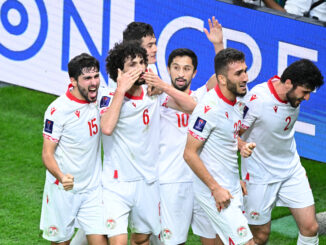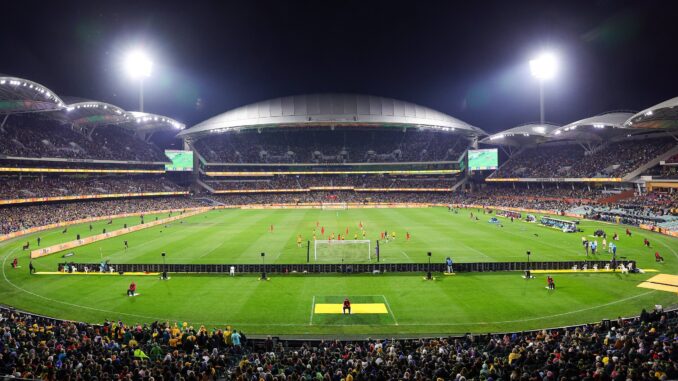
The FIFA Women’s World Cup was almost a year ago, but walking the streets of Adelaide last week you wouldn’t know it – you’d swear it was still in full swing.
Green and gold banners lined seemingly every street, bars and pubs were decked out in green and gold paraphernalia, while the airport was awash with branding and available tickets were non-existent.
This had all the hallmarks of that transformative month almost one year ago.
But instead, all this was for a low-key friendly against China. Although, where the Matildas are concerned, nothing is now low-key these days. They are legitimate box office gold, and their first match back in Adelaide in five years saw the city roll out the red carpet.
The crowd of 52,912, the second highest for a football game at Adelaide Oval, was the Matildas 13th consecutive sell out on home soil, a streak that shows no signs of ending any time soon. In fact, it’s quite possible it could still be going by the time the AFC Women’s Asian Cup rolls around in early 2026.
While Australia spluttered on the night to a 1-1 draw against China at Adelaide Oval, earned in the dying stages when Michelle Heyman bundled home from close range, sending the capacity crowd home somewhat satisfied, the scenes in Adelaide, and those around Australia over the past 12 months, have Football Australia officials convinced they can take the Women’s Asian Cup to unprecedented heights when Australia hosts the competition in 2026.
“Like we did with the Women’s World Cup, I think we can help the AFC take this competition to a new level,” Football Australia CEO James Johnson said in response to a question from The Asian Game in Adelaide last week.
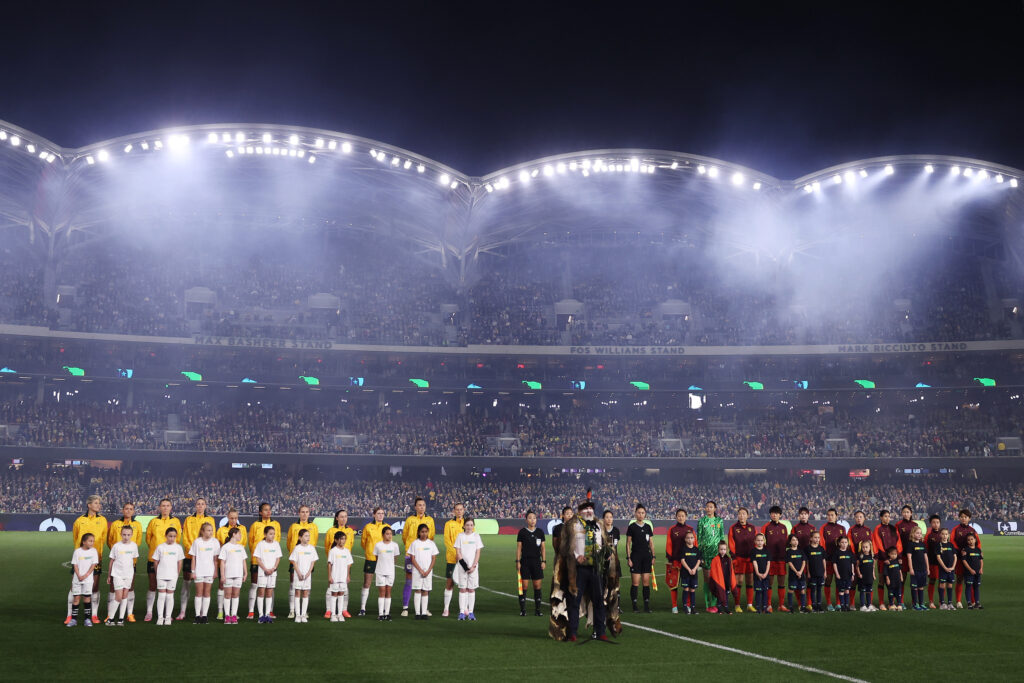
“My vision for this tournament is we’re going to see sold out stadiums across the country, we’re going to see great matches, we’re going to remember these moments for many years to come, like we do with the Women’s World Cup.
“Bringing this tournament back to Australia, hopefully having the Matildas compete well on the pitch, reach the final and lift a trophy on home soil is where we want to be.”
It’s all a far cry from the last time Australia hosted the Women’s Asian Cup back in 2006. Such was the lack of wider appeal at the time, the tournament was solely hosted in Adelaide and watched by a cumulative attendance of just 28,850, with the majority of matches attended by fewer than 1000 fans.
What’s most concerning for the growth of women’s football in Asia is that while the rest of the world has seen an explosion in the interest for women’s football, the Women’s Asian Cup has gone in the opposite direction.
Across the last four editions of the tournament, overall attendances have declined tournament-on-tournament, from 59,910 in China in 2010, to 45,250 in Vietnam in 2014 and 31,537 in Jordan in 2018.
India’s hosting in 2022 was a victim of the COVID-19 pandemic, with fans banned from attending, but was unlikely to move the needle when it comes to the stature of the tournament in the international landscape.
While it’s true that some of those tournaments were held in what could be called emerging markets for women’s football, the trend is still the trend. Women’s football in Asia hasn’t experienced the same boom as the rest of the world, which is all trending upwards.
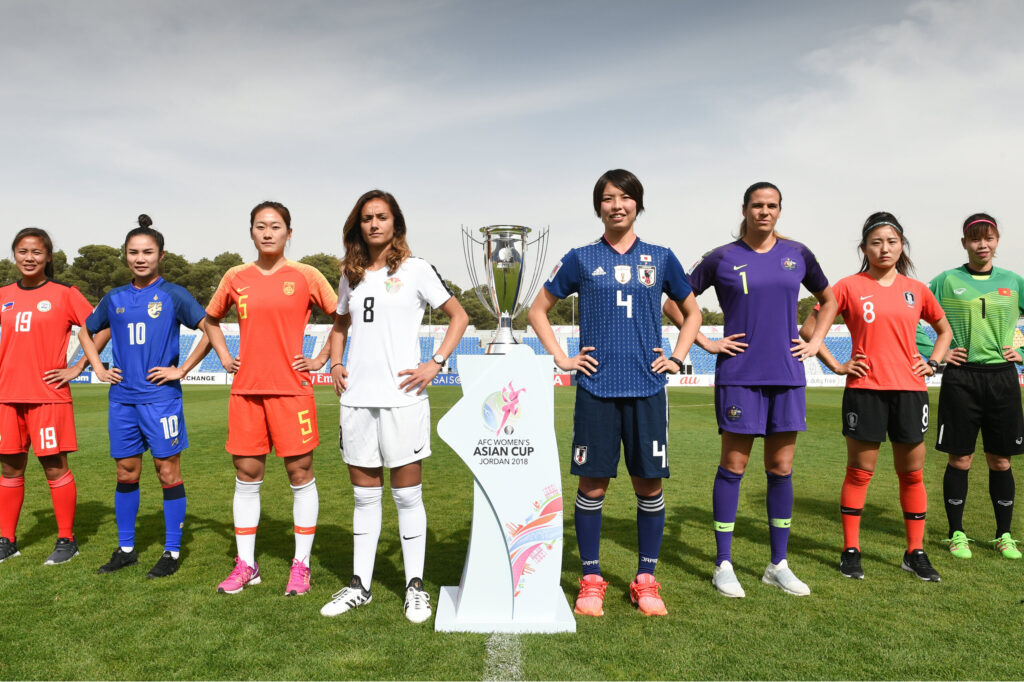
The UEFA Women’s Euros have seen attendances surge from almost 135,000 in 2009 to 575,000 in 2022, while the same is also true in other confederations as well.
The Women’s Africa Cup of Nations saw a major surge in popularity in 2022, including a sold out crowd of 50,000 for the final between Morocco and South Africa.
CONCACAF’s W Gold Cup saw its inaugural edition in 2023 attended by 123,000, while the 2022 Copa América Femenina in Colombia also saw record crowds, with a cumulative attendance of 172,233.
Asia has a lot of catching up to do, and fast.
It’s why, after the resounding success of Women’s World Cup in Australia last year, the AFC really had little choice but to award the tournament to Australia. It couldn’t afford another middling tournament.
“I am confident we will see a more vibrant and competitive edition in 2026 in Australia, where the unrivalled passion for the women’s game is so palpable,” AFC president Sheikh Salman said upon the official announcement of Australia as host.
He, and Football Australia, have every right to be bullish.
Australia’s successful hosting of the men’s tournament back in 2015, which saw Australia’s myriad multicultural communities turn out in larger than expected numbers, replicated on an even greater scale for the Women’s World Cup last year, is proof of Australia’s appetite for international tournaments.
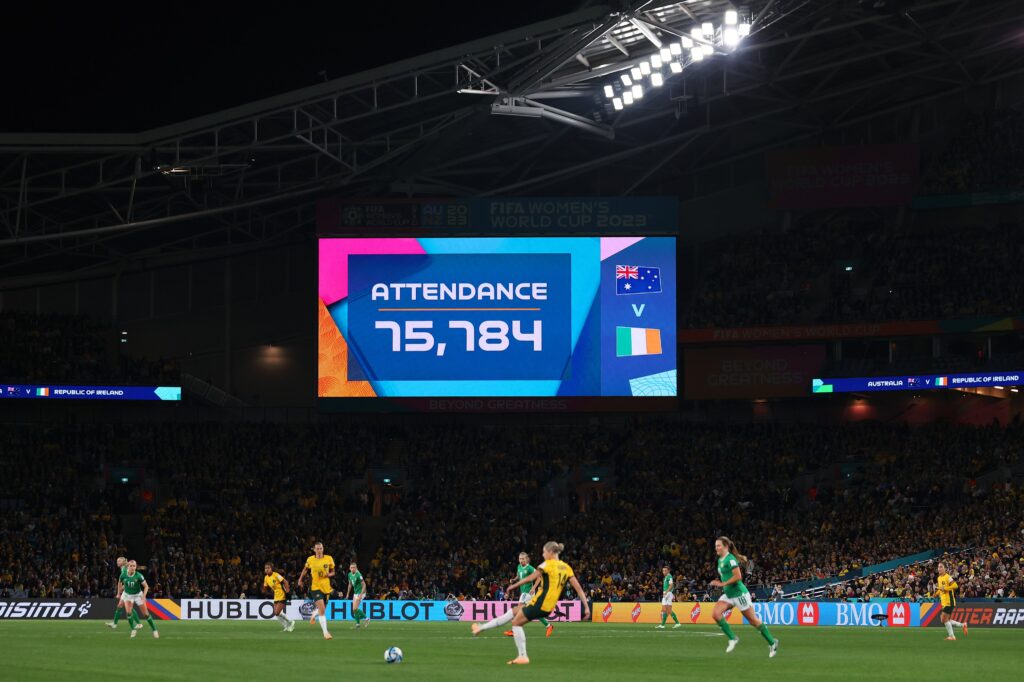
That the Matildas will enter the tournament as one of the favourites to lift the trophy certainly won’t do the tournament’s prospects any harm. After just falling short at the Women’s World Cup, the players themselves are desperate to atone and lift silverware on home soil.
“After the World Cup I’m so excited for the opportunity to play in another tournament in Australia,” veteran defender Alanna Kennedy told The Asian Game in Adelaide this week.
“We’re not footballers forever, so that’s something that I want to really enjoy for the rest of my career is those moments because they come and go so quickly.”
Clare Hunt, who excelled on home soil last year, earning a life-changing move to PSG in the aftermath, was another excited by the prospect of experiencing a major tournament on home soil again.
“For us to host the Asian Cup is really big,” she said.
“I think it’s a tournament we definitely believe we can win. I think it’ll be amazing and hopefully we get more growth and building capacity in our team, and hopefully when we hit 2026 we’ll be at a state where we can win that tournament too.”
As the AFC looks to turbocharge women’s football across the continent, with the establishment of a new continental club competition, the AFC Women’s Champions League, it needs a tentpole moment (or two) to signal a new coming of age for women’s football across the continent.
With an insatiable appetite for the Matildas, and international women’s football, Australia stands ready to deliver exactly that.
Photo: X/@TheMatildas
Listen to The Asian Game Podcast as we talk with Australia’s Clare Polkinghorne and Chinese midfielder Shen Mengyu


